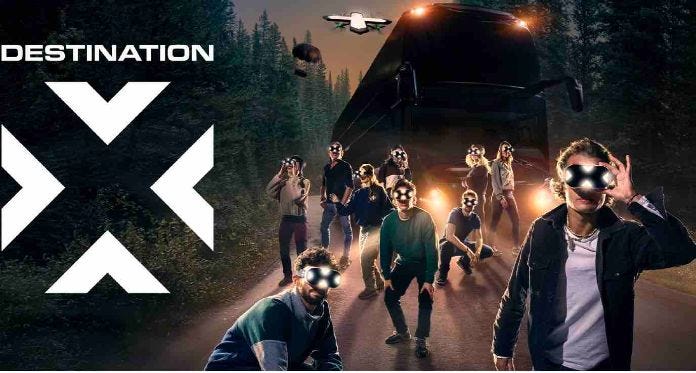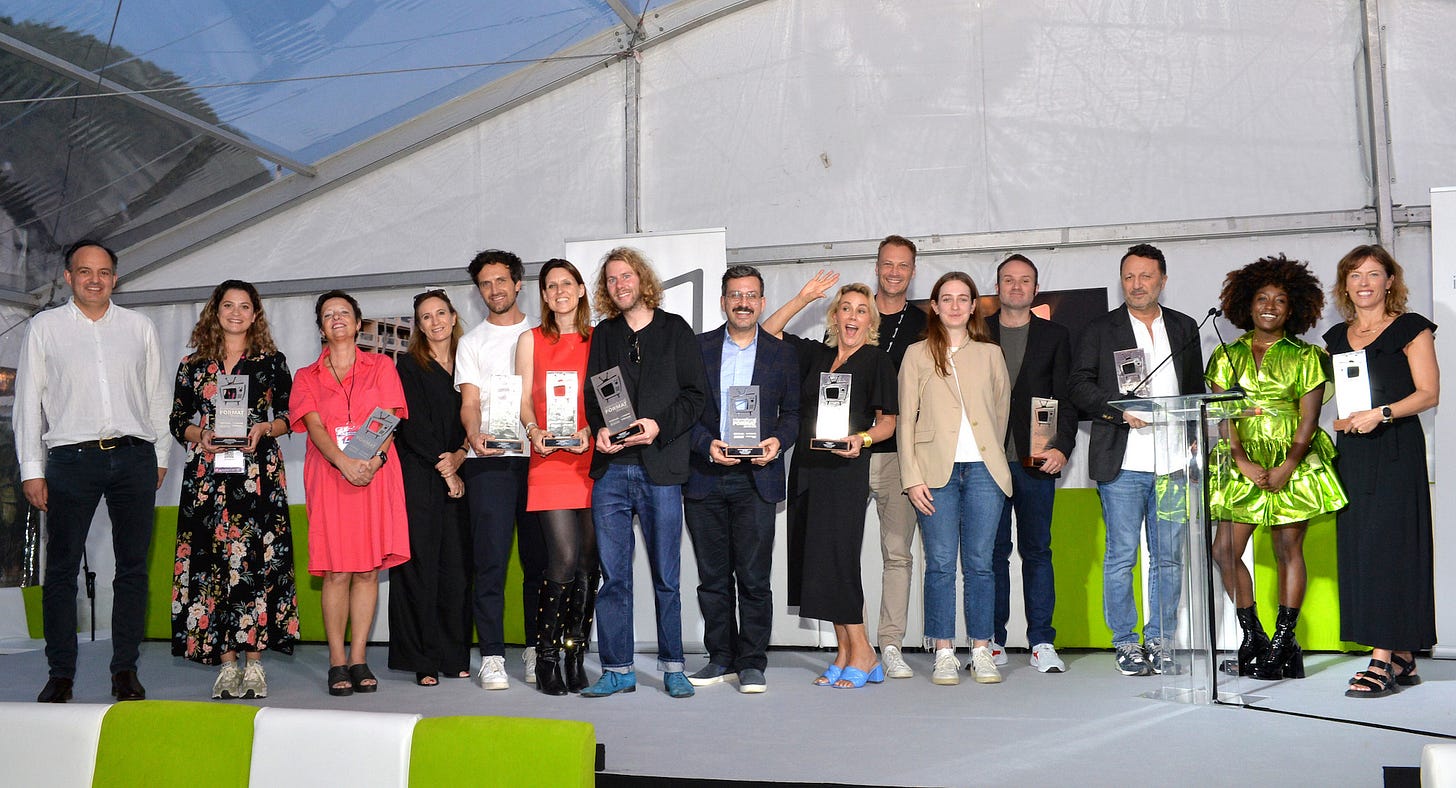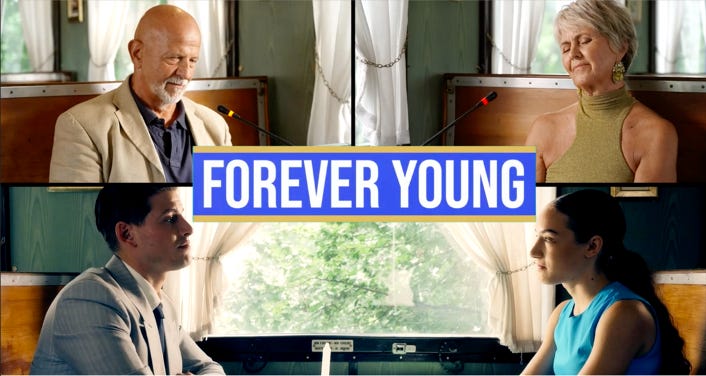1. A DOUBLE-FACED MARKET
This just ended MipCom edition has definitively been a double-faced market. On one hand the numbers are really positive: over 11,000 delegates from 100 countries attended during the week, with an increase from last year’s 10,800. The total includes a rise in buyers with over 3500 attending in 2023, with an increase of 10% year on year. Over 320 companies exhibited in and around the Palais des Festivals, including 31 country pavilions, whilst 50 companies made their debut with stands at this year’s mark. Even the splendor seemed the one of the “golden ages”, with big, rich exhibitors’ booths, full of drinks, food and people.
But on the other hand a shadow was hovering: the crisis of the commissioners (the main link in the production chain), or at least most of them. It’s easily understandable, with all these recent acquisitions, mergers, losses and the general change of the global media landscape. And of course this is reflected on a stasis in all the aspects of the market and the overall business.
This surely is a period of transition, with classic models still being strong, but looking a bit out-of-date, and new approaches that are coming, but that are still confused and unclear. As in all transition periods there’s a new balance waiting around the corner and actually there has never been so much demand for audiovisual contents as now, in all forms and for all platforms. So, let’s hold on, considering that that one of the key-successes of the format and unscripted in general has always been its ability to adapt to change, of both media and society.
2. INTERNATIONAL FORMAT AWARDS
The 2023 International Format Awards Ceremony was held Sunday 15th at Hyde Beach. It’s always a useful occasion to have a review on the global format landscape, although there are some inconsistencies in the categories: some candidates in “Best Returning Format” are more recent than some shows of the other categories; the winner of “Best Factual Entertainment Format”, Don’t Stop the Music, is actually not a factual at all (rather a comedy/musical show); the winner of “Best Comedy Format”, Finder$ Keeper$, although it’s funny and really enjoyable, is definitively more a game or a competition show. But - you know - categories in unscripted are quite tricky…
Anyway, the absolute triumphant is the Belgian Destination X, one of the most interesting formats of this year (see Friday’s Espresso 24th Feb). The show won both the “Best Multi-Platform Format” and the “Best Competition Reality Format”. In particular for the multi-platform part, we have to add that an addictive interactive app has been created for the viewers, so they can play together with the participants finding out the “mysterious place” where they think the contestants are.
Here the list of this edition’s winners (pic below).
Best Brand-Driven Format: Hot Wheels: Ultimate Challenge, produced by Endemol Shine, Workerbee and Mattel Television and distributed by Banijay.
Best Reality Format: The Piano, produced by Love production and distributed by Fremantle.
Best Studio-Based Gameshow Format: The 1% Club, produced by Magnum Media and distributed by BBC Studios.
Best Competition Reality Format & Best Multi-Platform Format: Destination X, produced by Geronimo and distributed by Be-Entertainment.
Best Factual Entertainment Format: Don’t Stop the Music, produced by CCCP and distributed by Newen Connect.
Best Comedy Format: Finder$ Keeper$, produced by PIT, Send in the Clowns and distributed by Be-Entertainment (3 titles for them!).
Best Returning Format: LEGO Masters, produced by Tuesday’s Child, Endemol Shine and distributed by Banijay.
3. A COUPLE OF FORMATS TO WATCH
And finally a personal list of formats, taken from Virginia Mouseler’s and David Ciaramella’s presentations, which have not been described in the previous Friday’s Espresso issues. Let’s start with a couple of these: others will follow in the next issue.
Forever Young is an original dating show of the Italian Blue Yazmine, where the elderly protagonists do not meet in person, but through young avatars, their “lovatars”, physically resembling them when they were young, and remote-controlled by them (this way the format works for both the old and new generations).
In a romantic train, the protagonist of the episode has the opportunity to get to know three possible partners through her own “lovatar”, who will show up at the rendezvous and will carry out her orders via earphones, thus keeping her real likeness a secret.
In the meantime, singles will follow the whole date in front of a monitor, in a carriage adjacent to the one where the meetings take place. At the end of the three speed dates, the protagonist of the episode will choose the person whom she wishes to get to know better and reveal her true appearance.
Are They For Real is a new generation studio-based dating/guessing game - produced and distributed by the English The Connected Set - that puts AI at the centre of its concept and not only as technological asset (like most other similar shows).
One singleton has to separate the real human from a group of attractive digital doppelgangers presented across 5 screens, and created by cutting edge generative AI tech. Over a series of rounds incorporating deepfake video, voice, text and personality engines, will they find the real human in the group, or fall for a deepfake in this original game of digital deception?
The format reminds a bit of the “Turing Test”, a milestone of computing machinery and intelligence, but of course in a very fun and entertaining way, and extends the list of the AI-formats, which is becoming quite a strong trend (see, for example, Friday’s Espresso 6th Oct).












